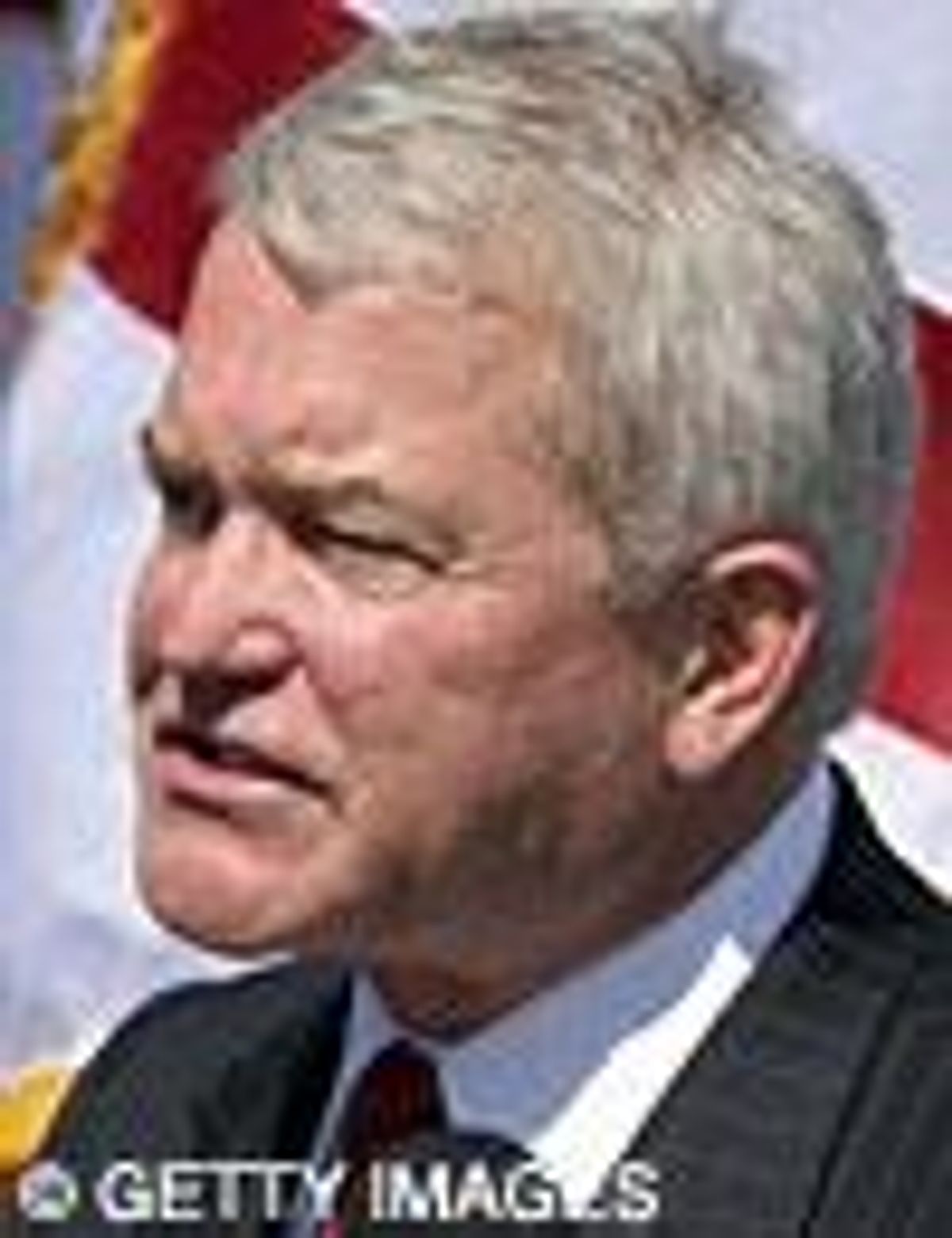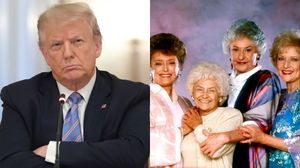House speaker
Dennis Hastert's job is on the line as members of the House
Ethics Committee decide how to launch a credible
investigation of former congressman Mark Foley's
salacious computer messages to teenage pages. An
extraordinary political spectacle surrounded the committee's
first scheduled meeting on Thursday. Republicans
publicly blamed Hastert for failing to take action
after he was warned about the messages, and a former
Foley aide said he told Republican leaders about the Florida
congressman's conduct years earlier than they have acknowledged.
With Republicans concerned about maintaining
their congressional majority in the November 7
elections, political support for Hastert was ebbing.
Republican officials said at least a few disgruntled members
of the GOP rank and file had discussed whether to call
on the speaker to step aside. The officials spoke on
the condition of anonymity, citing the sensitivity of
the issue.
Hastert told The Chicago Tribune on
Wednesday night that he has no thoughts of resigning.
He blamed ABC News, which broke the Foley e-mail
story, and Democratic operatives for the mushrooming scandal.
The Justice Department, meanwhile, ordered House
officials to preserve all records related to Foley's
electronic correspondence with teenagers. The request
for record preservation is often followed by search warrants
and subpoenas and signal that investigators are moving
closer to a criminal investigation.
Kirk Fordham, the former Foley aide, said in an
interview with the Associated Press that more than
three years ago he had ''more than one conversation
with senior staff at the highest level of the House of
Representatives asking them to intervene.'' He declined to
identify them, but officials said Scott Palmer,
Hastert's chief of staff, was one of them. The
officials spoke on condition of anonymity because they were
not authorized to discuss the matter.
Palmer said through a spokesman, ''What Kirk
Fordham said did not happen.''
Fordham resigned Wednesday as chief of staff to
Republican congressman Thomas Reynolds of New
York, the House GOP campaign chief who says he alerted
Hastert to concerns about Foley last spring. Fordham
disputed allegations that he covered up any misdeeds by
Foley. ''At no point ever did I ask anyone to block
any inquiries,'' said Fordham, who was Foley's
longtime chief of staff until leaving in January 2004.
Rep. Roy Blunt of Missouri, third-ranking GOP
leader, pointedly told reporters he would have handled
the Foley matter differently than Hastert, had he
known of it. ''I think I could have given some good
advice here, which is, you have to be curious, you have to
ask all the questions you can think of,'' Blunt said.
''You absolutely can't decide not to look into
activities because one individual's parents don't want
you to.''
House majority leader John Boehner said in a
radio interview Tuesday: ''I believe I talked to the
speaker, and he told me it had been taken care of. My
position is, it's in his corner, it's his responsibility.''
Ron Bonjean, Hastert's spokesman, said the issue
now rests with the Ethics Committee. ''We fully expect
that the bipartisan panel will do what it needs to do
to investigate this matter and protect the integrity
of the House,'' Bonjean said.
House Democratic leader Nancy Pelosi of
California said the committee needs to question
Hastert and the rest of the Republican leadership under
oath. ''The children, their parents, the public, and our
colleagues deserve answers, and those who covered up
Mark Foley's behavior must be held accountable,''
Pelosi said.
Foley, 52, resigned last Friday after he was
confronted with sexually explicit electronic messages
he had sent to teenage male pages. He has since
entered an alcohol rehabilitation facility at an undisclosed
location. Through his lawyer, he has said he is gay but
denied any sexual contact with minors.
His abrupt departure and the ensuing sex scandal
has shaken Republican confidence--and poll
numbers--and plunged Hastert and others into an
intensive effort to grapple with conflicting claims about
what senior lawmakers knew, when they learned it, and
what they did about it.
The Ethics Committee had endured a partisan
stalemate for 16 months that prevented its members
from launching any new investigations. The committee
broke the deadlock in May by announcing four separate
investigations, including the first congressional probe of a
lawmaker linked to convicted lobbyist Jack Abramoff.
Now the committee, which is equally divided
between Republicans and Democrats, has the sensitive
job of investigating the House speaker, the top
official in the chamber. When the committee investigated
Democratic speaker Jim Wright and Republican speaker
Newt Gingrich, it hired outside counsels.
The ethics panel also hired an outside lawyer to
conduct a broad sex-and-drugs investigation in the
early 1980s that ended with the censure of two House
members for consensual relationships with House pages,
who are high school students who work on Capitol Hill
delivering messages and running other errands.
The outside counsel in the Wright investigation
said the committee must hire an independent
investigator to convince the public it can conduct a
nonpartisan investigation of congressional leaders. Richard
Phelan, hired to investigate Wright, said an outside
counsel was key to a credible investigation.
''The perception outside [Washington] is that
Congress and the speaker and those running Congress
have screwed this thing up,'' Phelan said. ''I think
you probably have to start with Hastert.'' (Larry Margasak,
AP)



















































































